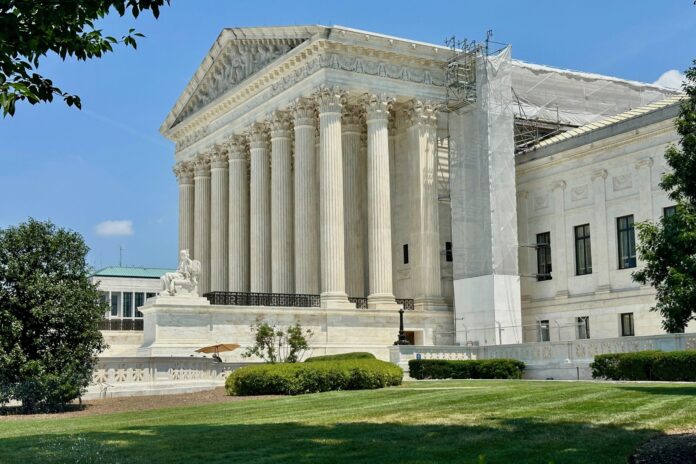ARGUMENT ANALYSIS
on Nov 7, 2024
at 12:12 pm

Facebook first learned that Cambridge Analytica had used a personality test app to harvest tens of thousands of users’ data in 2015. (Katie Barlow)
The justices heard arguments Wednesday in Facebook v. Amalgamated Bank, their first securities case of the year. The case involves the 2015 Cambridge Analytica-Facebook data breach, and considers whether Facebook’s disclosures to investors before the breach was public improperly downplayed the risks that data breaches posed to the company and its stock price.
Shareholders sued Facebook in 2018 after they learned that Cambridge Analytica had obtained the personal data of 30 million Facebook users. The shareholders conted that Facebook misled them about the risks to their investment.
Although some justices seemed more receptive to the argument of Kannon Shanmugam (representing Facebook), the dominant tone was skepticism. The headwinds started in the first minutes of the argument, with Justice Clarence Thomas offering an off-hand assessment that “a reasonable person†would assume from a statement like Facebook’s that nothing bad of this sort ever had happened to it.
Shanmugam quickly faced similar perspectives from Justices Sonia Sotomayor and Ketanji Brown Jackson, who compared Facebook’s disclosures to a homeowner suggesting that crime might be a risk to values in the future without mentioning a string of recent burglaries in the neighborhood. To the casual observer, there are not a lot of five-justice majorities that skip over those three justices.
That’s not to say that it was all bad for Facebook. Chief Justice John Roberts and Justice Brett Kavanaugh were the most reluctant to accept this as enough to justify a class action against Facebook. For Roberts, Facebook’s disclosure was more like a statement that you should be careful about walking down his front steps, because you might fall – a statement from which you might infer that somebody had fallen in the past. For him, the subjectivity of determining what a factfinder might infer from any particular disclosure made it “kind of a blank check†to “go to trial to decide†how to interpret the disclosure.
In the same vein, Kavanaugh thought it central that the Securities and Exchange Commission already has rules that require companies explicitly to disclose lots of adverse past events in various disclosures – and this is not on the list. For him, it makes no sense for “the judiciary … to walk the plank on this … when the SEC could do it.†As he put it, “[t]he SEC knows how to write regulations that require disclosure of past events. … Why not let the SEC do this if they want to?â€
Past experience suggests it is hard to imagine a unanimous Supreme Court affirming a decision from the U.S. Court of Appeals for the 9th Circuit expanding liability under the securities laws, so I certainly would not want to overread the argument. What I would say is this was not a compelling day for Meta. We’ll have to wait for the opinions in the spring to see what they actually decide.
[Disclosure: Tom Goldstein, the publisher of SCOTUSblog, argued on behalf of the investors in the 9th Circuit but was not involved in the Supreme Court proceedings in the case.]





